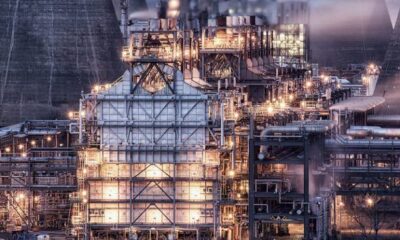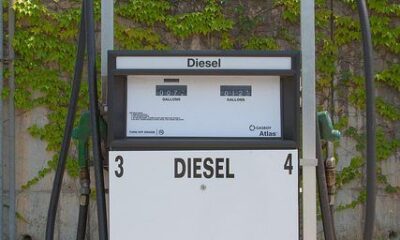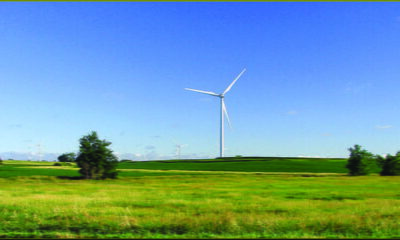

Environment
Investors urge governments to act upon dangerous methane levels
A collaborative appeal from three climate change groups has urged governments in oil and gas producing nations to challenge the current control of methane emissions.
Rapidly growing unconventional oil and gas production poses a threat to the sustainability of the planet. Hydraulic fracturing, or fracking, and shale gas production are thought to be among the major implementers of the dangerous levels of methane in the atmosphere, which have the potential to accelerate climate change significantly.
The trio of institutional investors, the North American Investor Network on Climate Risk (INCR), the European Institutional Investors Group on Climate Change (IIGCC) and the Australia/New Zealand Investor Group on Climate Change (IGCC), manage some $20 trillion in assets, and share a common concern about the potential for irreversible environmental damage and how this could affect both the global economy and the long-term financial performance of their own investments.
The groups have announced that they will be working in collaboration with the Carbon Disclosure Project in order to direct the best possible framework for methane mediation. The programme will enable companies to progress in tackling methane leakage and significantly reducing emissions. The final document on the draft disclosure framework is due for publication in October.
Following the publication of the International Energy Agency’s (IEA) Golden Rules for a Golden Age of Gas the statement addresses the deep concern that cheap gas techniques may overshadow support for renewable alternatives.
Mindy Lubber, director of the INCR, said: “We cannot declare a ‘golden age of gas’ without taking serious action to curb fugitive methane emissions.
“Natural gas can play an important role in the transition to low-carbon energy future, but it would be ill-advised to ignore the real and growing emissions impacts on unconventional oil and gas development made possible by hydro-fracking.
“Industry leaders have proven that methane emissions can be managed effectively with technologies and strategies that are available today.
“That is why investors will continue to work closely with the oil and gas industry and regulators to limit risks, increase efficiency and mitigate environmental impact by reducing emissions of this powerful greenhouse gas.”
Methane gas is a potent and abundant greenhouse gas (GHG). Only carbon dioxide accounts for more harmful gases in the atmosphere than the 14% of global emissions that methane accounts for, but the global warming potential (i.e., the ability of the gas to trap heat into the atmosphere) of methane is 25 times greater.
According to the United States Environmental Protection Agency (EPA), greenhouse gas emissions are expected to rise by around 35% globally between 2012 and 2020.
In calling for action from institutional investors, the three groups say in the statement: “We are asking the oil and gas companies in which we invest about their policies, practices and performance on methane emissions control, and about the challenges they face in implementing them.”
In their appeal to companies, they say: “As major shareholders we ask companies in the oil and gas sector to review their operational policies and practices to ensure they include requirements to implement best practice methane monitoring and control technology for new wells and gas infrastructure, and to evaluate the potential for retrofitting existing assets with appropriate leakage and venting avoidance technologies.”
And lastly, in an additional appeal for government regulation, the statement conveys the need for oil and gas producing nations to review their policies in minimalizing emissions. “This can be achieved through inclusion of methane in carbon tax or trading schemes, or through mandatory requirements to implement appropriate methane emissions control techniques… including green completions, plunger lifts, low-bleed pneumatics, vapour recovery units and flash tank separators.”
Climate change presents an affluent supply of long-term risks to the global economy. Slowly but surely, businesses and individuals are recognising the positive impacts that sustainability has upon the economy and the wider environment.
Implementing change for the future is essential in creating a world as blue and green tomorrow as it was yesterday. For more information on how to invest sustainably, download our Guide to Sustainable Investment for free.
Further reading:
IEA warns golden age of gas could scupper renewables
Environment agency backs fracking


 Environment12 months ago
Environment12 months agoAre Polymer Banknotes: an Eco-Friendly Trend or a Groundswell?

 Features11 months ago
Features11 months agoEco-Friendly Cryptocurrencies: Sustainable Investment Choices

 Features12 months ago
Features12 months agoEco-Friendly Crypto Traders Must Find the Right Exchange

 Energy11 months ago
Energy11 months agoThe Growing Role of Solar Panels in Ireland’s Energy Future





























